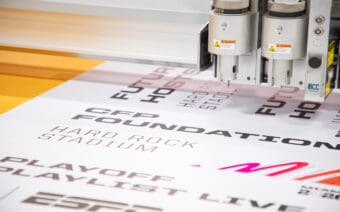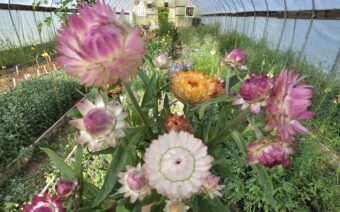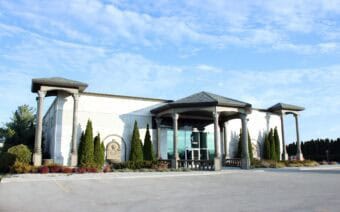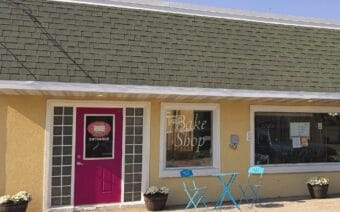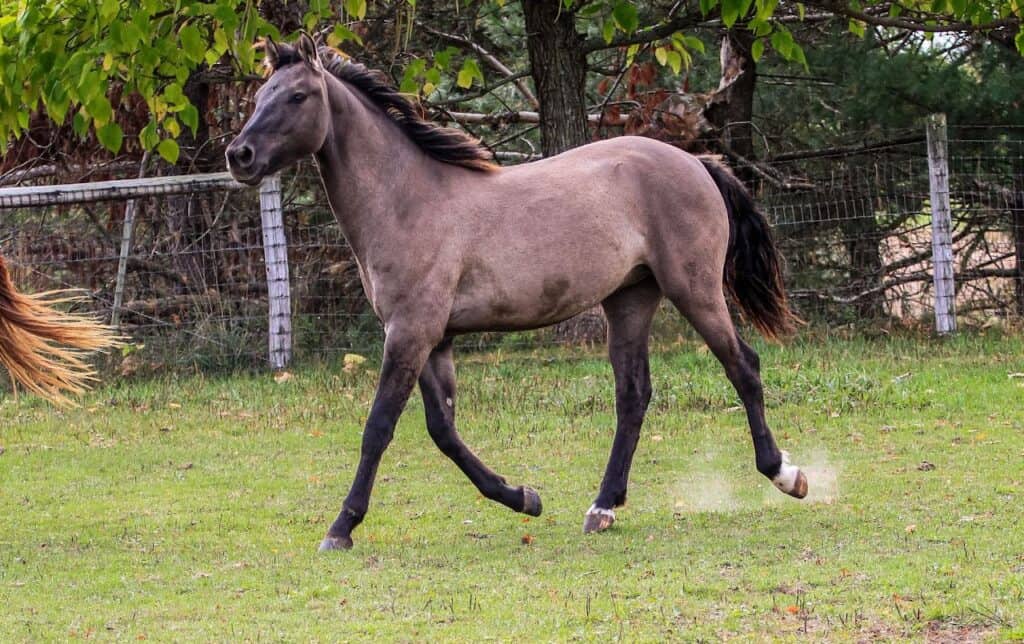
September 22, 2025
TIGERTON – Singing Winds Farm, Operations Manager Kevin Griepentrog said, isn’t in the business of raising industry standards.
Instead, he said its focus is on maintaining them.
Singing Winds Farm, Griepentrog said, specializes in the breeding and training of Morgan horses – which he said was “the first breed [of horses] in America.”
“So, it’s a nostalgic thing for me,” he said. “They were used in the Civil War… and everybody in the Civil War wanted to be [riding] a Morgan.”
Across the breed’s many use cases, Griepentrog said Morgan horses became popular for their durability, endurance and versatility.
“I guess I’m biased, obviously, but Morgans can do it all,” he said. “A lot of people say, ‘Well, Quarter horses can do that, and all these other horses can do this or that,’ and [they’re correct], but the Morgan was the first one.”
Over time, Griepentrog said some breeders’ horses’ bloodlines have “strayed” from the traditional Morgan standard.
Typically, he said farms will alter their breeding programs to achieve the “award-winning” look of horses the judges pin in show competitions.
“They will change the way their horses look, and they will start buying horses that are going to get pinned,” he said.
The “show world” of the equestrian industry, Griepentrog said, differs from the “breeding world” in terms of a breeder’s genetic goals.
“You have some breeders who will breed just for the show [circuits], and I’m more of a purist,” he said. “I want the breed standard to be the standard, and that’s what I want my horses to look like.”
Griepentrog said through his method of maintaining the breed’s standard, Singing Winds Farm has garnered the attention of those in search of high-caliber horses.
“A 50-mile ride [for] one of our horses is nothing,” he said. “We have sold some of our horses to endurance riders who specifically do that, and the last one we sold went to… North Carolina to one of the three Olympian equine coaches.”
However, no matter who their customer is, Griepentrog said “being better for the breed” is the central goal of everything they do at Singing Winds Farm.
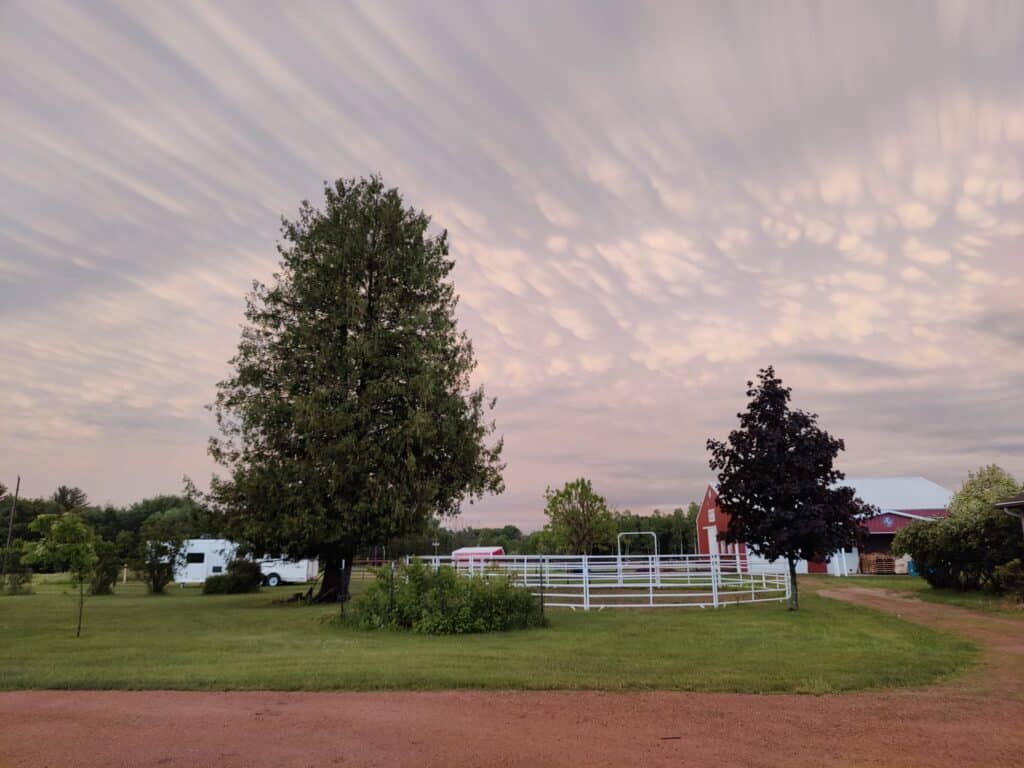
The business of horse-breeding
Though Singing Winds has not typically geared its stock toward competing in equestrian show circuits, Griepentrog’s co-operations manager, Lisa Redfern, said participation is a “necessary evil.”
“The people at the shows – the public – that’s your bread and butter, too, [because] you have to stay relevant,” she said. “You have to be out there, so to speak, in the limelight for people to see.”
Griepentrog said with Singing Winds Farm’s stock competing, they’re also helping to bring back the true Morgan breed standards.
“We’re trying to bring the standard back into these horses,” he said. “So, it’s not important for us to win, but when you start seeing our horses there, we’ll win eventually.”
Maintaining their breeding program’s standards and quality over time, Griepentrog said, aids in Singing Winds Farm’s credibility – which, in turn, increases its visibility.
“In the horse world, we have our prefix – which is Singing Winds – [and our] mares and stallions [are sold] with the prefix,” he said. “[So], you let the name speak for itself, and the public comes.”
Because their goal is to produce a consistently quality horse that meets traditional Morgan standards, Griepentrog said the genetic decisions he and Redfern make when breeding their stock are for the betterment and longevity of both their stock and the overall breed.
“I don’t want to be the magic behind it,” he said. “We [technically] are, because we’re making the decisions, but you want your stock to be the magic.”
Griepentrog said the process of developing one’s breeding program is “long and arduous, because you’re never quite sure” what the end result will be until a foal is born – and the “exceptional” quality of Singing Winds Farm’s stock, Redfern added, makes their decision-making process difficult.
“How we usually do it for our mares is the stud we’re picking that year is breeding A, B and C mares because of [a specific] reason,” she said. “That mare might have a smaller hind end and the stud has a huge hind end, [or] she has a super nice head and his head might need a little something. So, you put those two together, [but] it’s hard to pick.”
In addition to breeding within their own stock, Redfern said Singing Winds Farm will also take on “outside breeding” jobs.
“That’s a little more hands-on, so to speak,” she said.
When breeding within one’s own stock, Redfern said a stud is typically kept with multiple mares that he mates with over time, whereas an outside mare is paired with a single stud selected either by her owner or by Singing Winds.
“Sometimes [the owners] only want to leave the horse here for the breeding season, and then the mare stays here with the stud,” she said. “Other times, people just come in when the mare is cycling, and then Kevin [holds] the stud – which is called ‘in-hand breeding.’”
Griepentrog said Singing Winds offers shorter-term stays and in-hand breeding in an attempt to make their high-quality stock more accessible to those who’d like to benefit from it.
“It is more expensive [to keep a horse here for the whole breeding season],” he said. “We charge board[ing fees] for the mare because it’s eating our hay and… goes on to our nutrition program.”
A mare’s ability to become pregnant, Griepentrog said, greatly depends on her nutrition – making it more difficult for an outside mare’s pregnancy to take if she’s only there for in-hand breeding.
“A lot of times [the pregnancy] won’t take the first time, so then you’ve got to wait another month, and by then she’ll have the [necessary] nutrition,” he said.
Variable revenue
Griepentrog said he estimates the Badger State has a roughly billion-dollar equestrian industry.
Though Redfern said there’s a lack of regulation surrounding the horse-breeding industry.
“It’s kind of like the Wild West,” she said. “You get backyard breeders, and then there are breeders who promote the breed, and you only find out [which is which through] word of mouth.”
Griepentrog said there are also breeders who establish their brand solely by selling their stock through the show circuits.
“Some breeders get a big name because they are selling just to the show people, and then those horses pin,” he said. “But, if the judges don’t pin [the breeder’s horse], they’ll change their program. I will not change my program.”
The horse industry, Redfern and Griepentrog said, is not a get-rich-quick business by any means – adding that the price of a horse greatly depends on when and to whom it’s sold.
“On the low end, for a just-weaned foal… we start at about $6,500, and a fully trained horse, depending on the discipline… you’re probably going to get $20,000,” he said. “If that horse starts pinning or doing really well, it’s endless then – you’re starting to talk about the Kentucky Derby [horses where] you can [sell them for] hundreds of thousands of dollars.”
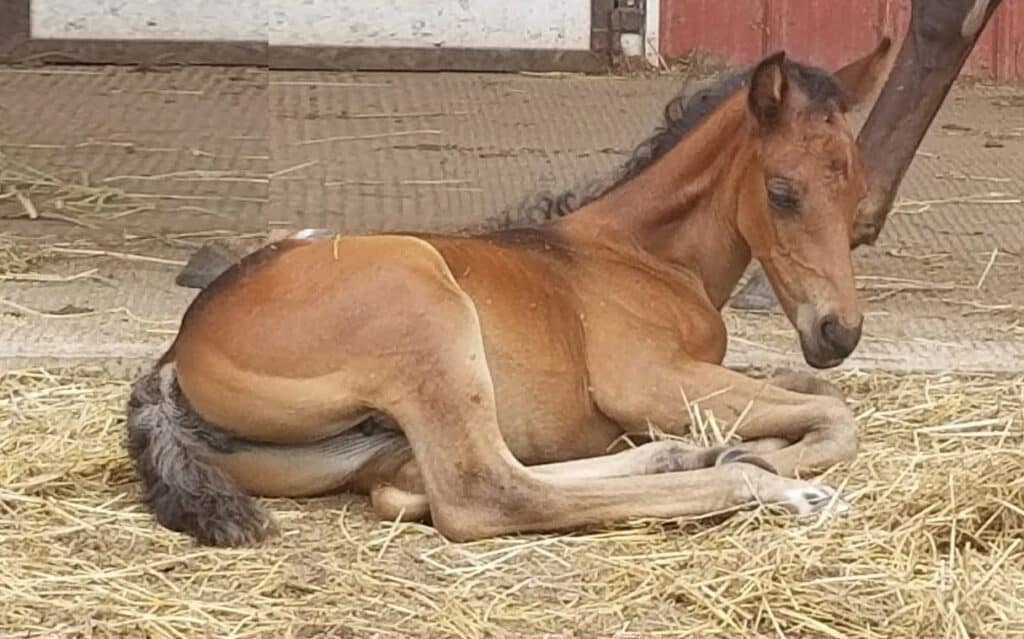
Passion for the animals, Redfern said, is typically a baseline requirement for professional horse breeders, because she and Griepentrog said “nobody makes money in horses.”
“It all washes out at the end of the year,” she said. “You clearly have to do it for the love of the animal, because if you’re looking at the paycheck, it can be like a desert for a while.”
Every Singing Winds horse sold, Griepentrog said, is hand-delivered by himself to ensure its habitat is up to par and its new owner is prepared and equipped to care for it.
“When we sold [and delivered our] last horse, Justice, out east, we didn’t even know what [kind of place] we were delivering to,” he said. “That’s why I usually hand-deliver the horses. The deal is not done until I say it’s done, and I accept where they’re going to live.”
Every year, Griepentrog said he and Redfern “shoot for five or six” horse sales.
“But not every year does a mare[’s pregnancy] take,” he said. “It will usually [take] three out of the four years, and that’s fine. She needs that time to regenerate, recharge and get healthy because they carry [the foal] for 11 months.”
A legacy program
Established in the late ’90s by Richard and Sharon Crane, Griepentrog said the Singing Winds farm in Tigerton was intended to be the couple’s retirement project.
The Cranes, according to Singing Winds Farm’s website (singingwindsfarm.com), bought a 60-acre farm and moved from Wisconsin to southern Iowa in 1983, where they began breeding Morgans shortly after in 1985.
Roughly a decade later, the website further states the Cranes moved back to Wisconsin for Richard’s work – bringing with them nine of the 20 horses they raised in Iowa.
Downsizing to a 13-acre farm first in southern Wisconsin, Griepentrog said they didn’t move to their current 51-acre property in Tigerton until Richard approached his retirement.
“It was going to be their retirement project,” he said, “but they owned it prior to that, and were working on it until they had it [ready to] move up here.”
Roughly 11 years ago, Griepentrog said the Cranes approached him regarding a partnership as they aged past their ability to work on the farm.
“That’s how it began – we partnered so they could phase out,” he said. “They weren’t really ready to [not have] the horses around, and they’re still not. But they just simply can’t care for them like they should, because they’re in their 80s now. So, I’ve taken on the [work].”
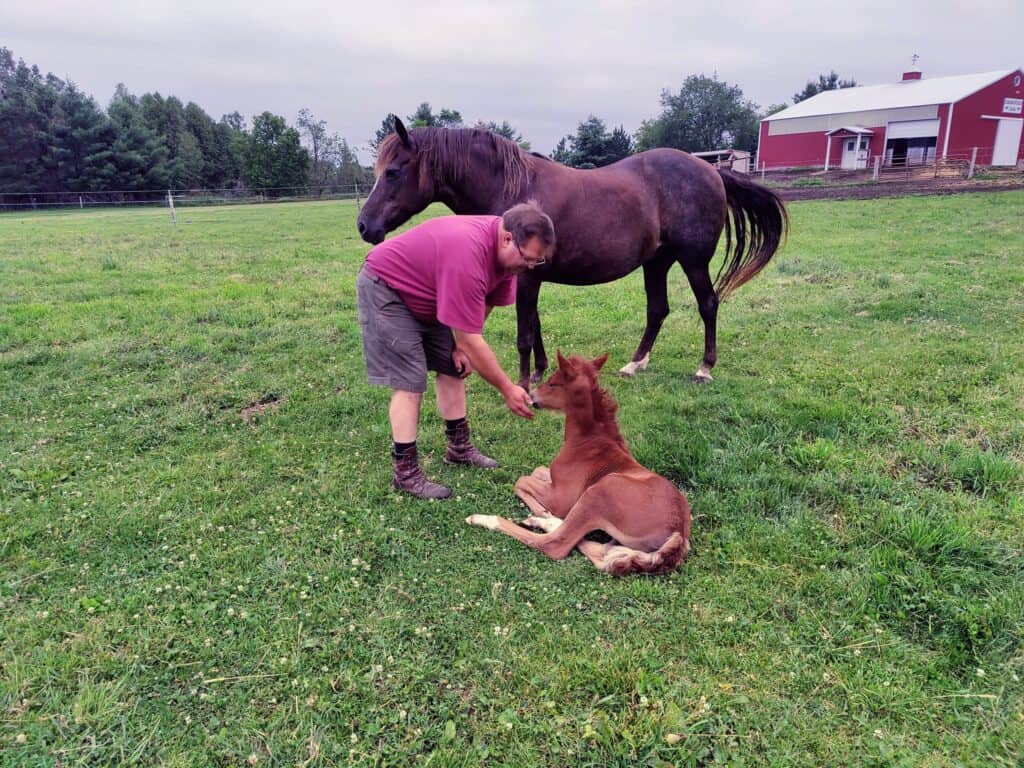
Prior to his partnership with the Cranes and Singing Winds, Griepentrog said he served in the U.S. military, began working in real estate and started his own logistics company.
“But once I got around those horses more often, it was like I found my peace with them,” he said. “They were good therapy for me, so it just snowballed from there, and [the Cranes] wanted to breed one more time.”
That “one more time,” Griepentrog said, “escalated” into a new era for Singing Winds as he and Redfern now carry on the Cranes’ name and their stock’s historically high quality.
“We’re always striving for perfection, knowing that on a scale of one to 10, there’s never a 10,” he said. “That’s what we always say, but if you’re producing nines, that’s pretty good.”
 Voyageurs Bakehouse expands into new downtown Green Bay space
Voyageurs Bakehouse expands into new downtown Green Bay space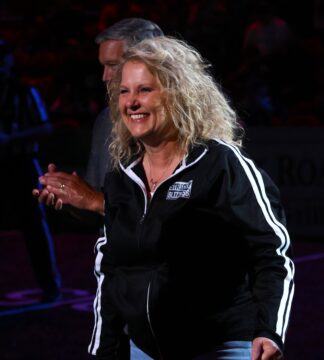 Treankler’s business playbook leads Green Bay Blizzard to success
Treankler’s business playbook leads Green Bay Blizzard to success


